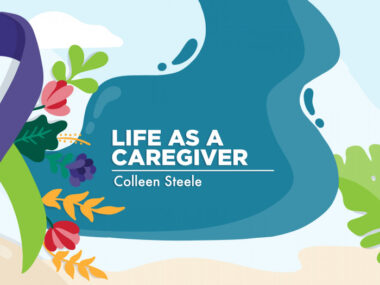Self-advocacy Is an Important Part of Patient Treatment
Written by |

Living with pulmonary hypertension (PH) is a constant challenge. If I’m not educating myself, I’m educating my family and friends, and at times, even my medical team. Yes, the members of my medical team are experts in medicine, but I am the expert of my own body.
Recently, I started a new treatment my neurologist ordered to help clear up brain fog and problems with concentrating, both lingering effects of having COVID-19. Unfortunately, after a month, I didn’t see any improvement. I started tasks, but wouldn’t finish them. I felt like a hamster running on a wheel and suffered from poor appetite, an irregular heartbeat, and increased fatigue.
I also worried that because of my chronic kidney disease, it could take longer to flush this medication out of my body. When I told the nurse what was happening and what I was worried about, she told me I could stop the medication and contact her if there were any problems.
I have found that advocating for myself is essential, especially since I’m on multiple treatments. Each time a new medication is added, my medical team and I review a checklist to be sure there are no drug interactions or contraindications.
Sometimes I have disagreed with my medical team’s decisions. These disagreements usually occur when a new treatment is being considered. Everybody responds to different treatments differently, and it’s been my experience that doctors are not always sensitive enough to side effects. I don’t believe anyone can know how a side effect will feel until they’ve experienced the same thing.
Several months ago, I had some adverse side effects from one of my PH treatments, Adempas (riociguat). The toll on my kidneys seemed to outweigh any benefits, so I expressed my concerns but agreed to continue the treatment for two more weeks. When lab results showed no improvement with my kidneys, I told my PH specialist I would discontinue the treatment — and I did.
It’s sometimes not easy to disagree with a doctor’s suggestion. Some doctors appreciate it when patients engage in self-advocacy, but some don’t. It has always been important to me to have physicians who respect my autonomy and value healthy doctor-patient relationships.
In my experience, self-advocacy requires both competence and humility. By keeping track of the impact of a treatment or side effect, I gain the confidence to speak up and present my case to my medical team, and to disagree with them if I need to. But I always try to be humble and remind myself that I’m not a doctor.
In what ways have you advocated for yourself or your loved ones in a medical setting? Please share in the comments below.
***
Note: Pulmonary Hypertension News is strictly a news and information website about the disease. It does not provide medical advice, diagnosis, or treatment. This content is not intended to be a substitute for professional medical advice, diagnosis, or treatment. Always seek the advice of your physician or other qualified health provider with any questions you may have regarding a medical condition. Never disregard professional medical advice or delay in seeking it because of something you have read on this website. The opinions expressed in this column are not those of Pulmonary Hypertension News or its parent company, Bionews, and are intended to spark discussion about issues pertaining to pulmonary hypertension.





Leave a comment
Fill in the required fields to post. Your email address will not be published.